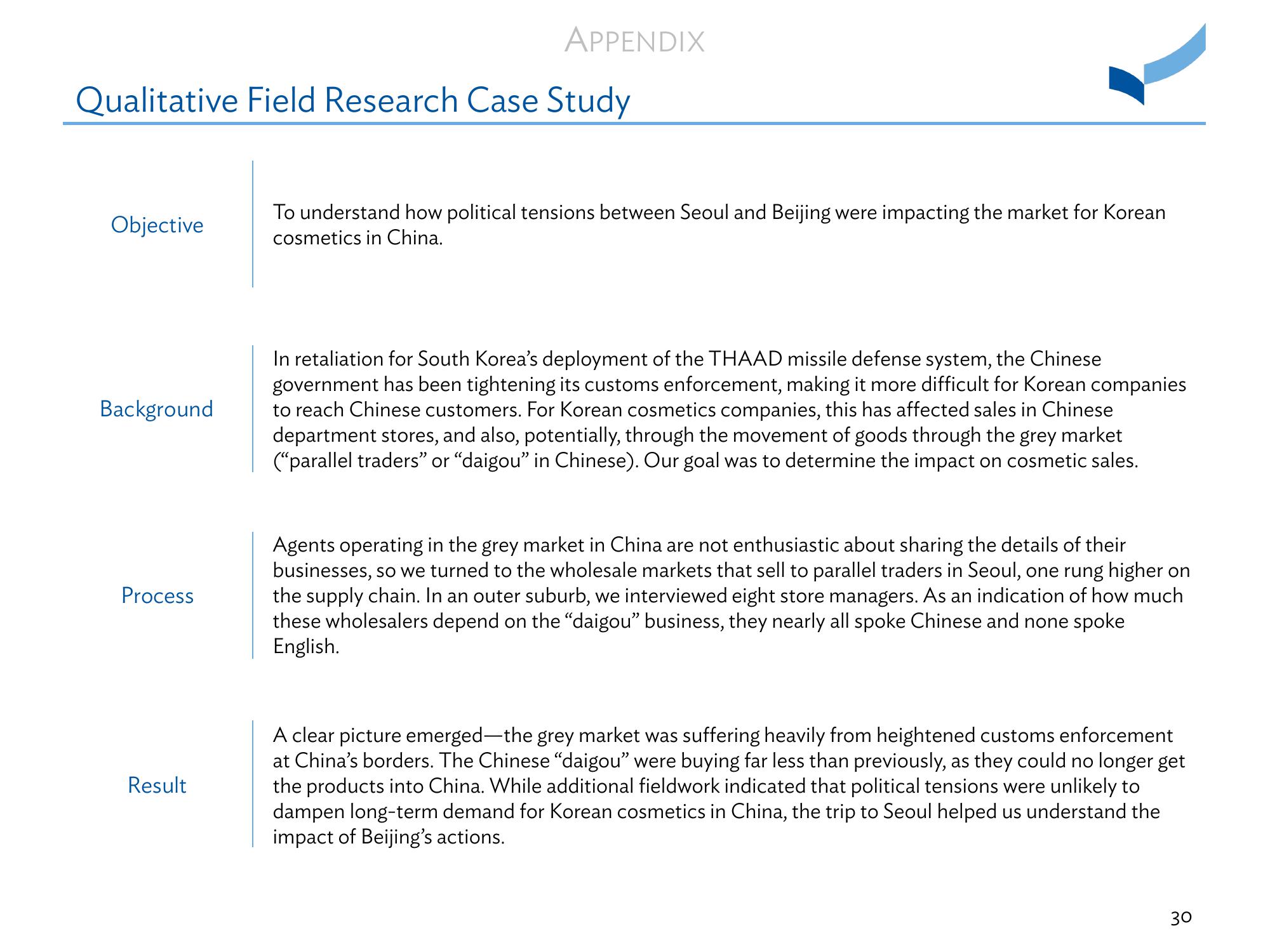Massachusetts Water Resources Authority (“MWRA”) Employees’ Retirement System
Qualitative Field Research Case Study
Objective
Background
Process
APPENDIX
Result
To understand how political tensions between Seoul and Beijing were impacting the market for Korean
cosmetics in China.
In retaliation for South Korea's deployment of the THAAD missile defense system, the Chinese
government has been tightening its customs enforcement, making it more difficult for Korean companies
to reach Chinese customers. For Korean cosmetics companies, this has affected sales in Chinese
department stores, and also, potentially, through the movement of goods through the grey market
("parallel traders" or "daigou" in Chinese). Our goal was to determine the impact on cosmetic sales.
Agents operating in the grey market in China are not enthusiastic about sharing the details of their
businesses, so we turned to the wholesale markets that sell to parallel traders in Seoul, one rung higher on
the supply chain. In an outer suburb, we interviewed eight store managers. As an indication of how much
these wholesalers depend on the “daigou" business, they nearly all spoke Chinese and none spoke
English.
A clear picture emerged-the grey market was suffering heavily from heightened customs enforcement
at China's borders. The Chinese "daigou" were buying far less than previously, as they could no longer get
the products into China. While additional fieldwork indicated that political tensions were unlikely to
dampen long-term demand for Korean cosmetics in China, the trip to Seoul helped us understand the
impact of Beijing's actions.
30View entire presentation